LeAnne Howe is a Choctaw author whose genre-bending works take place in the US Southeast, Oklahoma, and beyond our national borders to bring Native American characters and themes to the global stage. Best known for her American Book Award–winning novel SHELL SHAKER (2001), LeAnne Howe (b. 1951) is also a poet, playwright, screenwriter, essayist, theorist, and humorist. She has held numerous honors including a Fulbright Distinguished Scholarship in Amman, Jordan, from 2010 to 2011, and she was the recipient of the Modern Language Association’s first Prize for Studies in Native American Literatures, Cultures, and Languages for her travelogue, CHOCTALKING ON OTHER REALITIES (2013).
Conversations With Leanne Howe (2022)
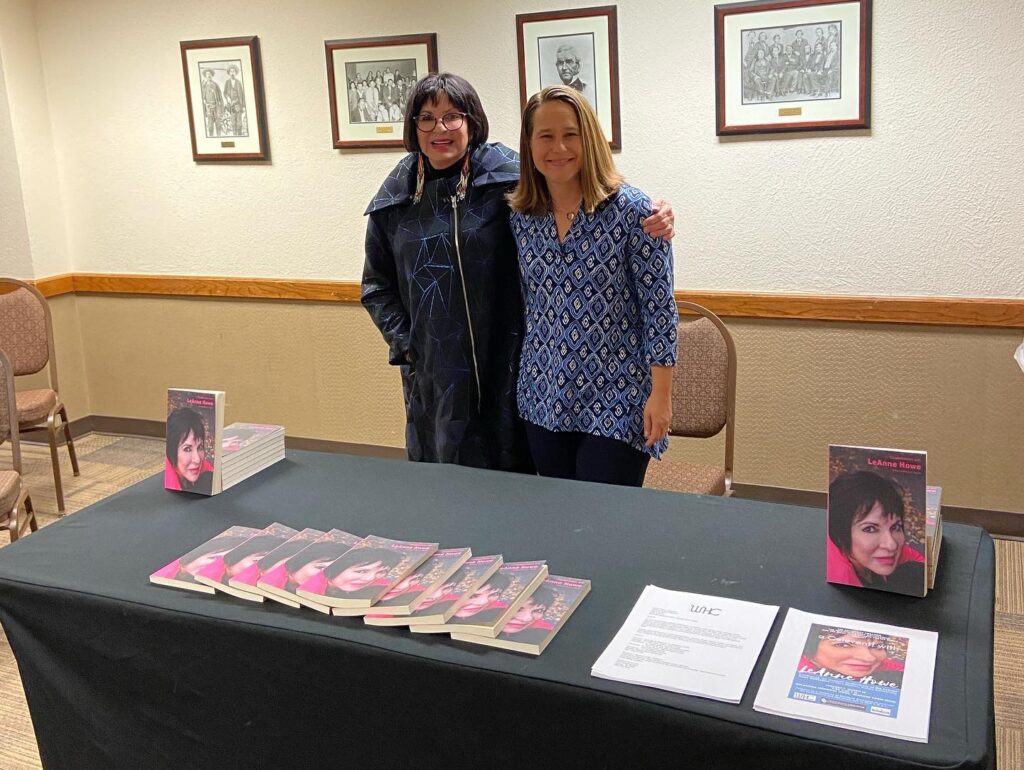

CONVERSATIONS WITH LEANNE HOWE is the first collection of interviews with the groundbreaking Choctaw author spanning the period from 2002 to 2020. The interviews in this collection delve into Howe’s poetics, her innovative critical methodology of tribalography, her personal history, and her position on subjects ranging from the Lone Ranger to Native American mascots. Two previously unpublished interviews, “‘An American in New York’: LeAnne Howe” (2019) and “Genre-Sliding on Stage with LeAnne Howe” (2020), explore unexamined areas of her personal history and how it impacted her creative work, including childhood trauma and her incubation as a playwright in the 1980s. These conversations with poet C.A. Conrad’s 2019 Occult Poetry Radio interview also give important insights on the background of Howe’s newest critically acclaimed work, SAVAGE CONVERSATIONS (2019), about Mary Todd Lincoln’s hallucination of a “Savage Indian” during her time in Bellevue Place sanitarium. Taken as a whole, CONVERSATIONS WITH LEANNE HOWE showcases the development and continued impact of one of the most important Indigenous American writers of the twenty-first century.
Purchase here.
Famine Pots: The Choctaw-Irish Gift Exchange, 1847-Present (2020)
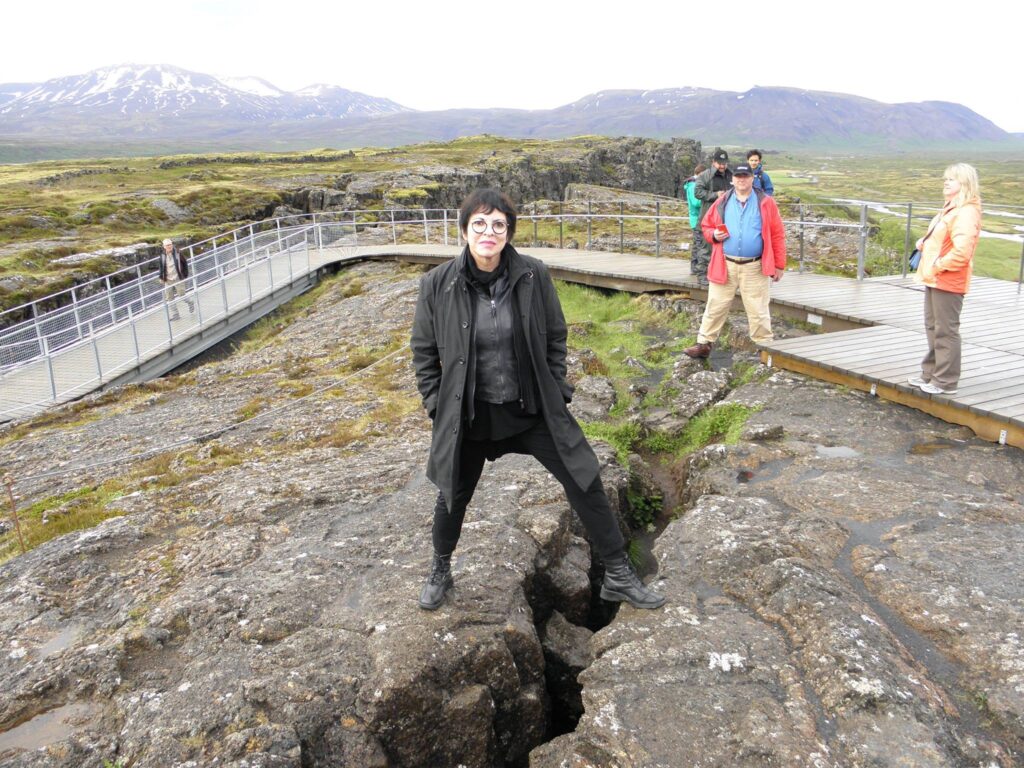
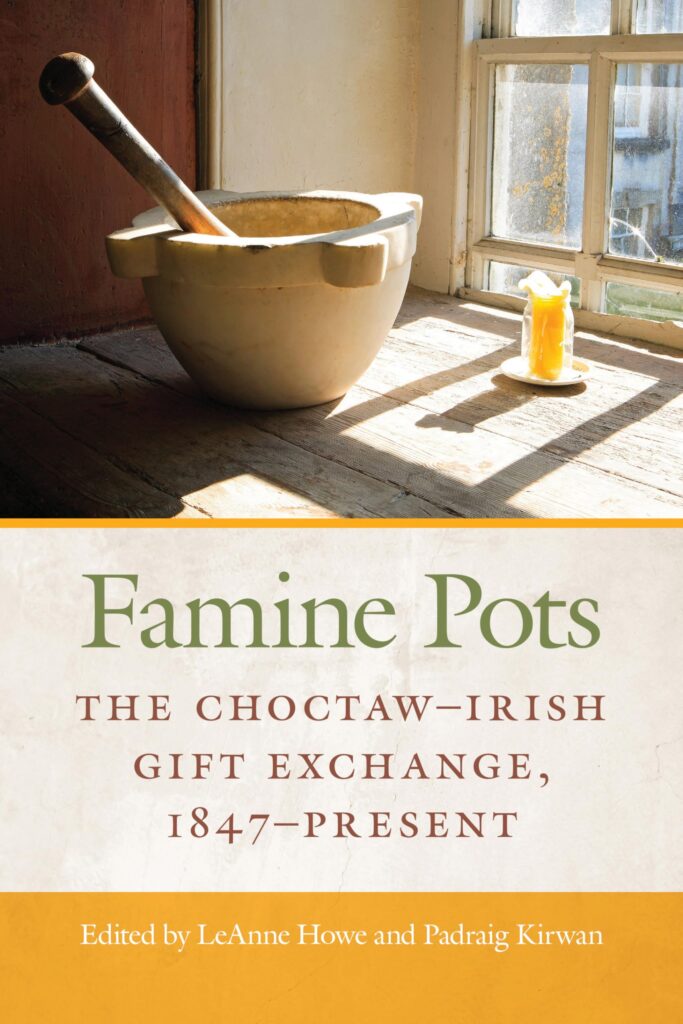
The remarkable story of the money sent by the Choctaw to the Irish in 1847 is one that is often told and remembered by people in both nations. This gift was sent to the Irish from the Choctaw at the height of the potato famine in Ireland, just sixteen years after the Choctaw began their march on the Trail of Tears toward the areas west of the Mississippi River. FAMINE POTS honors that extraordinary gift and provides further context about and consideration of this powerful symbol of cross-cultural synergy through a collection of essays and poems that speak volumes of the empathy and connectivity between the two communities. As well as signaling patterns of movement and exchange, this study of the gift exchange invites reflection on processes of cultural formation within Choctaw and Irish society alike, and sheds light on longtime concerns surrounding spiritual and social identities. This volume, edited by Howe and Padraig Kirwan, aims to facilitate a fuller understanding of the historical complexities that surrounded migration and movement in the colonial world, which in turn will help lead to a more constructive consideration of the ways in which Irish and Native American Studies might be drawn together today.
Purchase here.
LeAnne Howe at the Intersections of Southern and Native American Literature (2018)
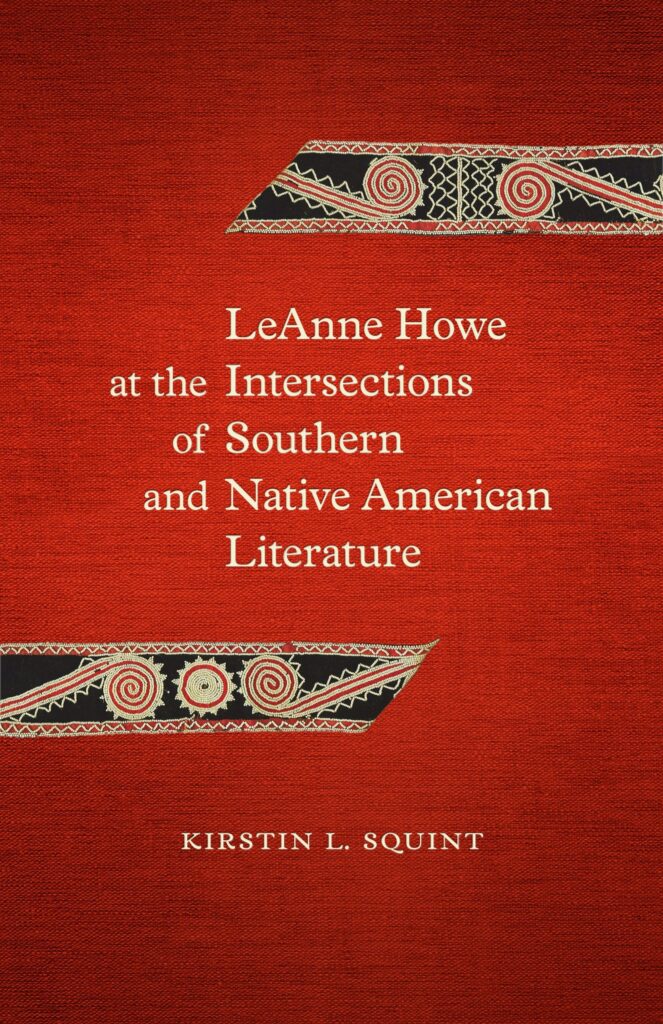
In the first monograph to consider Howe’s entire body of work, LEANNE HOWE AT THE INTERSECTION OF SOUTHERN AND NATIVE AMERICAN LITERATURE, Kirstin L. Squint expands contemporary scholarship on Howe by examining her nuanced portrayal of Choctaw history and culture as modes of expression. Squint shows that Howe’s writings engage with Native, southern, and global networks by probing regional identity, gender power, authenticity, and performance from a distinctly Choctaw perspective―a method of discourse which Howe terms “Choctalking.” Drawing on interdisciplinary methodologies and theories, Squint complicates prevailing models of the Native South by proposing the concept of the “Interstate South,” a space in which Native Americans travel physically and metaphorically between tribal, national, and international boundaries. Squint considers Howe’s engagement with these interconnected spaces and cultures, as well as how indigeneity can circulate throughout them.
This important critical work―which includes an appendix with a previously unpublished interview with Howe―contributes to ongoing conversations about the Native South, positioning Howe as a pivotal creative force operating at under-examined points of contact between Native American and southern literature.
Purchase here.
Seeing Red―Hollywood’s Pixeled Skins: American Indians and Film (2013)
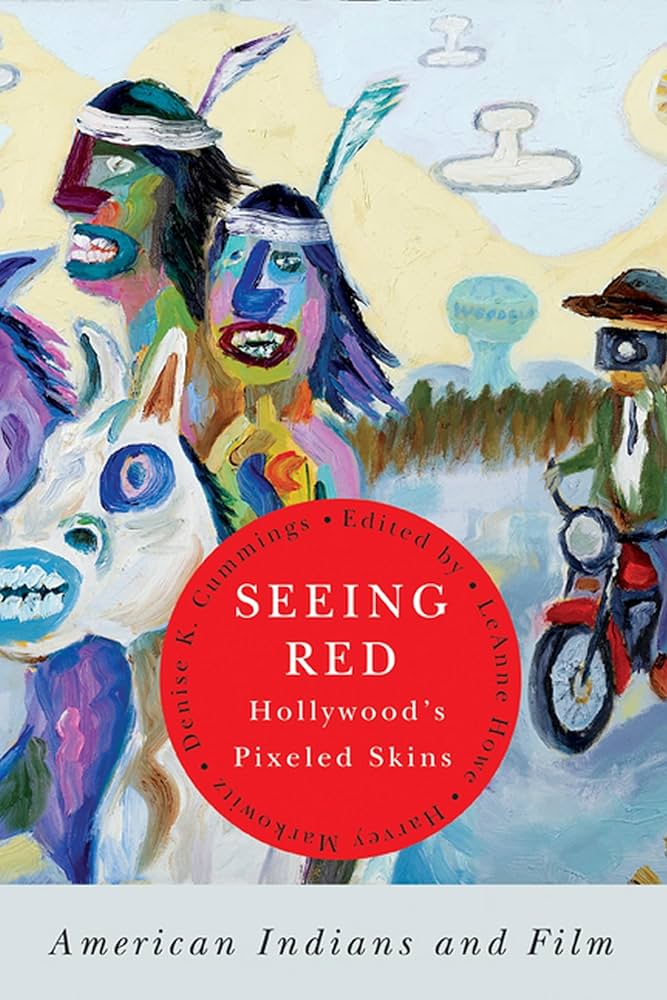
At once informative, comic, and plaintive, SEEING RED HOLLYWOOD’ PIXELED SKINS is an anthology of critical reviews that reexamines the ways in which American Indians have traditionally been portrayed in film. From George B. Seitz’s 1925 The Vanishing American to Rick Schroder’s 2004 Black Cloud, these 36 reviews by prominent scholars of American Indian Studies are accessible, personal, intimate, and oftentimes autobiographic. SEEING RED HOLLYWOOD’ PIXELED SKINS offers indispensable perspectives from American Indian cultures to foreground the dramatic, frequently ridiculous difference between the experiences of Native peoples and their depiction in film. By pointing out and poking fun at the dominant ideologies and perpetuation of stereotypes of Native Americans in Hollywood, the book gives readers the ability to recognize both good filmmaking and the dangers of misrepresenting aboriginal peoples. The anthology offers a method to historicize and contextualize cinematic representations spanning the blatantly racist, to the well-intentioned, to more recent independent productions. SEEING RED is a unique collaboration by scholars in American Indian Studies that draws on the stereotypical representations of the past to suggest ways of seeing American Indians and indigenous peoples more clearly in the twenty-first century.
Purchase here.
